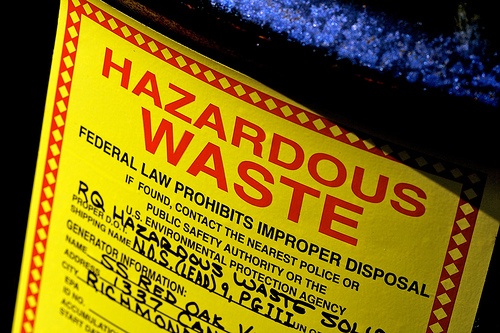Canada has established a goal of zero plastic waste by 2030, and has established a variety of regulatory and informational programs to pursue that goal. As part of these effort, Environment and Climate Change Canada (ECCC) has established the Federal Plastics Registry (FPR), along with accompanying regulations requiring reporting by targeted producers of plastic packaging, electronic and electrical equipment, and single-use or disposable products. These entities’ reporting requirements expand annually in three “phases,” beginning with Phase 1 reports starting with selected 2024 data due by September 29, 2025. (I wrote about ECCC’s proposal to establish the FPR, HERE). The remainder of this note summarizes Phase 1 requirements and identifies Phase 2-4 targets.
Read More
Tags:
Environmental risks,
Environmental,
climate change,
Environmental Projects,
Environment,
Environmental Policy,
Climate,
plastics,
Environmental Compliance,
Plastic Waste
During 2024, at least five states considered legislation to enact “Climate Superfund” laws targeting fossil fuel companies, applying “polluter pays” principles enshrined in the US federal Superfund law (Comprehensive Environmental Response, Compensation and Liability Act (CERCLA of 1980) and its many state counterparts. At least two states enacted such laws – Vermont and New York. The rest of this note provides brief summaries of these laws.
Read More
Tags:
Environmental risks,
Environmental,
Greenhouse Gas,
climate change,
Environmental Projects,
Environment,
Environmental Policy,
Climate,
environmental law,
environmental protection,
Environmental Compliance
The Toxic Substances Control Act (TSCA) includes procedures for the Environmental Protection Agency (EPA) to evaluate risks presented by existing chemicals using the latest scientific information – incorporating information developed after a chemical entered use in the US. Based on these reviews, EPA updates its regulatory requirements, ranging from labeling-only through use restrictions up to and including bans from further distribution and use. (I summarized these review requirements HERE). On December 18, 2024, EPA published restrictions in the Federal Register, for carbon tetrachloride (CTC) and perchloroethylene (PCE), based on its hazard reviews for those chemicals. The rest of this note discusses these new restrictions.
Read More
Tags:
Environmental risks,
Environmental,
EPA,
tsca,
Environmental Projects,
chemical safety,
Environment,
Environmental Policy,
Chemical Safety Board,
Hazardous Chemicals,
Environmental Compliance,
EPA Regulations,
EPA Standards
Effective December 10, 2024, the US Environmental Protection Agency (EPA) adopted rules for the management of hydrofluorocarbons (HFCs) potentially released from equipment during maintenance or other services,
.. These rules support US efforts to implement the 2016 Kigali Amendment to the United Nations-sponsored Montreal Protocol on Substances that Deplete the Ozone Layer (which I wrote about HERE), and codified in the December 2020 coronavirus relief bill (American Innovation and Manufacturing Act of 2020 (AIM Act; which included dozens of unrelated provisions within its 5,593 pages). EPA adopted over-arching HFC phase-down rules in September 2021 (I wrote about them HERE), and continues to adjust and refine their requirements. These latest rules appear in a 191 page document in the Federal Register, finalizing (with revisions) most provisions in a proposal issued in October 2023 (which I wrote about HERE).The remainder of this note summarizes EPA’s new rules, which impose requirements using authority under the Clean Air Act (CAA) and the Resource Conservation and Recovery Act (RCRA).
Read More
Tags:
Environmental risks,
Environmental,
EPA,
Environmental Projects,
Environment,
Environmental Policy,
Environmental Compliance
On November 21, 2024 the Environmental Protection Agency (EPA) published its “National Strategy to Prevent Plastic Pollution.” This Strategy finalizes a draft issued in May 2023 (which I wrote about HERE). EPA notes that over the last 20 years, the global annual production of plastic products and generation of plastic waste have both more than doubled, and are projected to triple again by 2060. North America both produces and consumes roughly 19% of global plastics. To address these issues, the Strategy identifies a set of voluntary actions intenraftded to reduce the volumes of plastic wastes that end up disposed or discarded within the US. EPA describes these measures, and the agency’s related activities, as “an ambitious, equitable approach to reduce and recover plastics and other materials.” The remainder of this note summarizes the 74 pages of the Strategy.
Read More
Tags:
Environmental risks,
Environmental,
Environmental Projects,
Environment,
Environmental Policy,
plastics,
Pollution,
Environmental Compliance
New Jersey's Spill Compensation and Control Act (Spill Act) was enacted in 1977, establishing broad responsibilities for entities that handle hazardous substances, including reporting and cleanup by those responsible for contamination. (The Spill Act predated and helped inspire the national Superfund law (Comprehensive Environmental Response, Compensation, and Liability Act of 1980). The Act also provides limitations on liability in some circumstances, notably for entities that acquire land that is already contaminated. The Spill Act is administered by the New Jersey Department of Environmental Protection (DEP). On October 21, DEP proposed to expand Spill Act reporting responsibilities to all entities that discover contamination, including those conducting site evaluations as part of their due diligence – “All Appropriate Inquiries” – in support of possible property transfers.
Read More
Tags:
Environmental risks,
Environmental,
Environmental Projects,
Hazardous Waste,
Environment,
Environmental Policy,
Hazardous Chemicals,
Hazardous Material,
Environmental Compliance,
Hazardous Substances
On September 27, 2024, California’s governor Gavin Newsom signed Senate Bill (SB) 219, amending greenhouse gas (GHG) emission reporting requirements for targeted organizations doing business in the state, enacted in 2023 (SB 253 (Wiener) (Climate Corporate Data Accountability Act) and SB 261 (Stern)) and initially scheduled to require compliance beginning January 1, 2025. (I wrote about them HERE) SB 219 revises and delays emissions reporting requirements. The revised requirements will still be administered by the California Air Resources Board (ARB), expanding its longstanding air quality and climate authority (GHG provisions center on the Global Warming Solutions Act of 2006 ((AB 32)). The remainder of this note discusses the revisions made by SB 219.
Read More
Tags:
California Legislation,
Environmental risks,
Environmental,
Greenhouse Gas,
Environmental Projects,
California,
Environment,
Environmental Policy
In recent years, the US Environmental Protection Agency (EPA) has reviewed its overlapping responsibilities to regulate pesticides under the Federal Insecticide, Fungicide and Rodenticide Act (FIFRA), and to protect endangered and threatened species under the Endangered Species Act (ESA). In August, EPA completed its latest step in these efforts by issuing its “Herbicide Strategy to Reduce Exposure of Federally Listed Endangered and Threatened Species and Designated Critical Habitats from the Use of Conventional Agricultural Herbicides” (Herbicide Strategy). The rest of this note summarizes the Herbicide Strategy, and provides context regarding EPA’s FIFRA and ESA authorities.
Read More
Tags:
Environmental risks,
Environmental,
EPA,
Environmental Projects,
Environment,
Environmental Policy,
environmental protection
Canada has just imposed restrictions against false or misleading statements made in marketing or other materials regarding the environmental impacts and benefits of goods and services -- “greenwashing.” These provisions were adopted as amendments to the Competition Act, enacted as part of the Government’s omnibus “Fall Economic Statement Implementation Act, 2023” (Bill C-59), which received royal Assent on June 20.
Read More
Tags:
Environmental risks,
Environmental,
Environmental Projects,
Environment,
Environmental Policy
Effective March 12, 2020, the US Department of Justice (DOJ) prohibits its US attorneys from entering into settlements in which DOJ lowers penalties for defendants that agree to conduct “supplemental environmental projects (SEPs)”, if the SEP involves payments to a third party. This action is the latest in a series of DOJ moves against SEPs since President Trump took office. The first such step was a June 2017 DOJ management memorandum directing US attorneys NOT to agree to SEPs that include payments to third parties (I wrote about that memo HERE). The second was an August 2019 memorandum restricting use of SEPs in Clean Water Act (CWA) cases against state and local governments, in which DOJ rejected arguments that recent legislation allows them (I wrote about that memo HERE).
Read More
Tags:
Business & Legal,
Environmental risks,
Environmental,
EPA,
clean water,
clean air,
DOJ,
SEP,
CWA,
Environmental Projects










